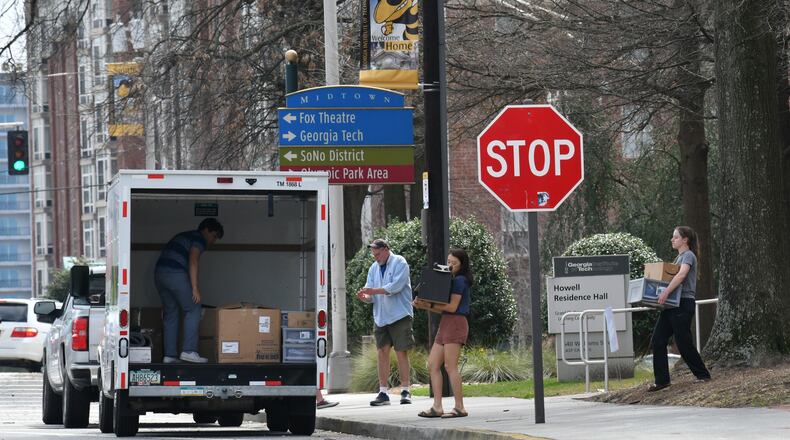Students at many of Georgia’s largest public universities on Monday made the switch to virtual learning and while officials braced for glitches, they believe it went relatively well.
Three of the state’s four largest institutions — Georgia State, the University of Georgia and Georgia Tech — began virtual learning Monday. The fourth, Kennesaw State, began remote learning earlier this month. Administrators and faculty spent the last two weeks preparing for the transition after campuses were closed to prevent the spread of the coronavirus. The transition to online learning, officials said, is a major shift.
As Georgia Tech President Ángel Cabrera said in a video “in our almost 136-year history, for the first time we will not be hosting face-to-face classes.”
Some classes were taught live while others contained video posted by professors. Many students said they preferred the former in order to ask questions and get immediate feedback.
Student complaints included some faculty members having trouble using video software, slides not shared or faculty posting lectures online last week before classes were scheduled to begin.
Nick Alfred, a second-year student at the University of Georgia, took an online history class Monday and wondered how some things would be done, such as determining attendance, which is mandatory for many classes. The class went smoothly, he said.
“As first days go, it went well,” said Alfred, 19, a finance major.
Wesley Tillman, 21, a third-year UGA student in the Terry College of Business, said all of his classes Monday were prerecorded. Tillman said he would prefer live learning. He noticed item and date changes in the syllabus of some of his classes to adjust to the new schedule.
These, he said, are unprecedented times.
“It’s probably going to be an adjustment for everyone,” Tillman said.
The University System and its schools have posted online resources for faculty and students to adapt.
Another concern: virtual learning in communities lacking strong high-speed internet capabilities. The University System attempted to addressed the concerns via Twitter on Monday, noting a new state website that directs browsers to free public Wi-Fi sites.
About the Author
Keep Reading
The Latest
Featured



